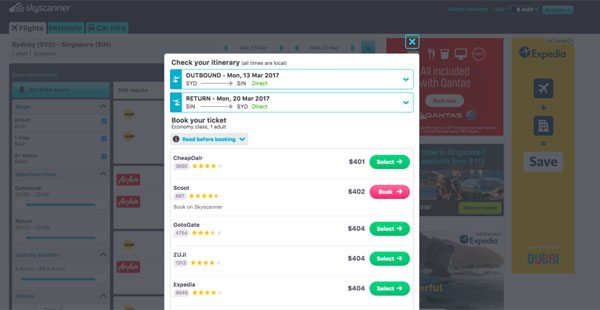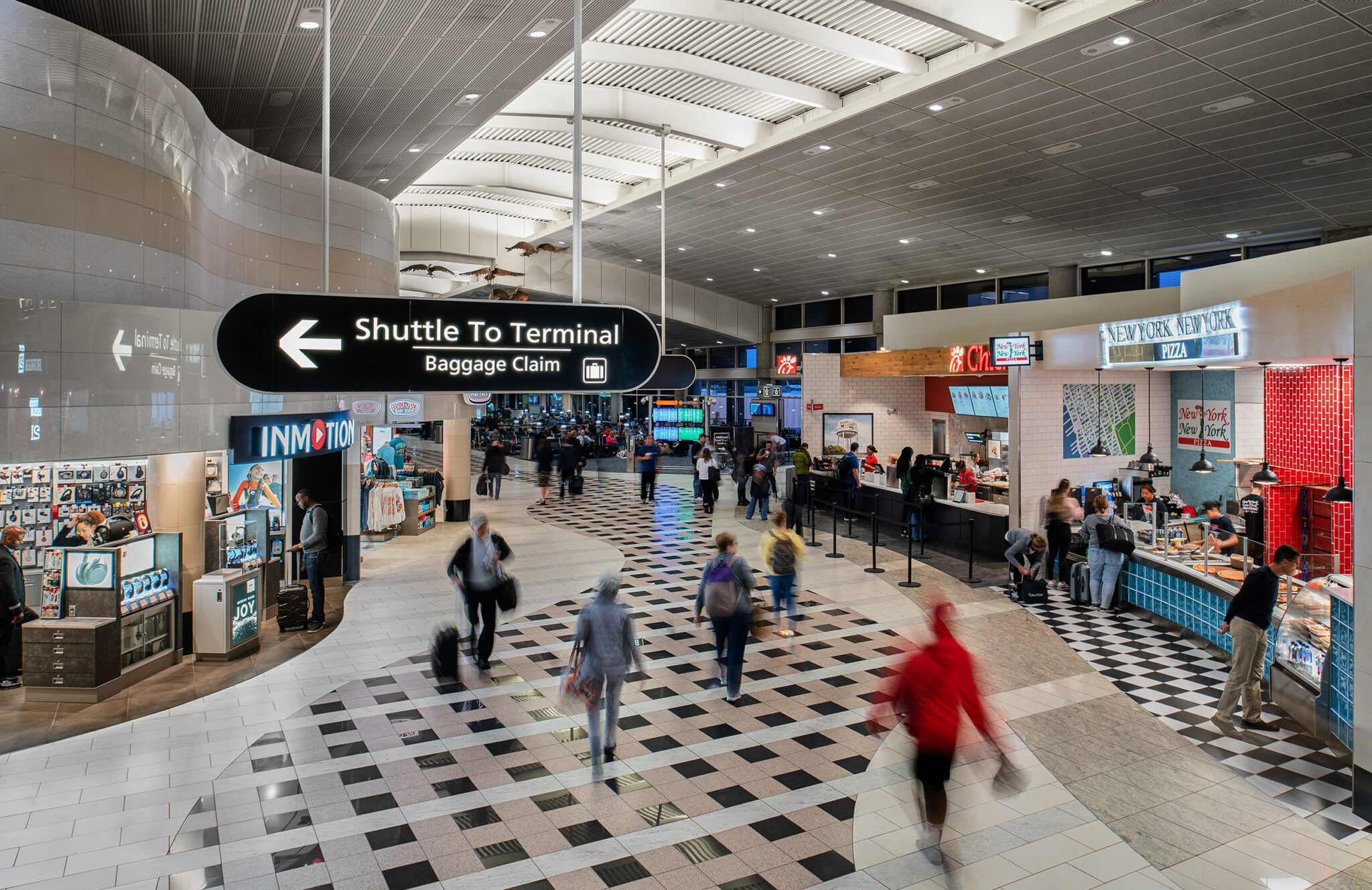Flight Metasearch Analysis: Why Are Sites Slow to Add Instant Booking?
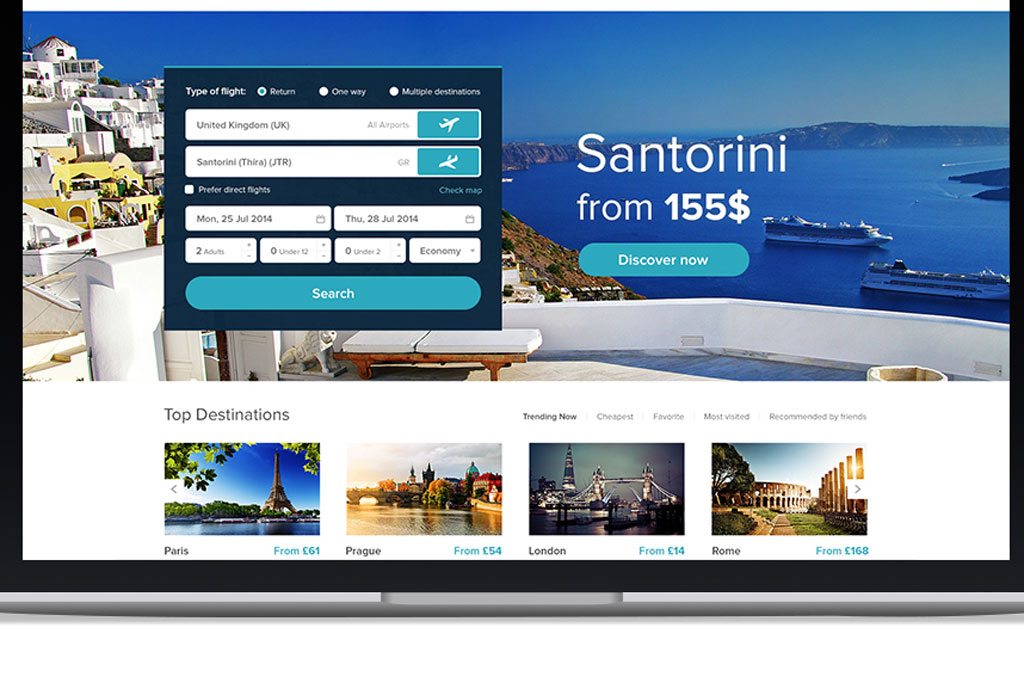
Skift Take
Airfare comparison websites are hot, given Tuesday's news that the Priceline Group will buy UK and Denmark-based metasearch site Momondo Group for $550 million and November's news that Ctrip will acquire Edinburgh-based Skyscanner for $1.74 billion. Even Hipmunk was snapped up by Concur in September.
Given deals and ample valuations, it's easy to buy into the cliche that technology companies innovate at supersonic speeds while airlines are slow to change.
But the opposite can seem true, at least if you are a consumer shopping for flights online.
Airlines are inventing products to sell (and upsell) along with leveling new fees and restrictions faster than Kayak, Skyscanner, Momondo, Dohop, iGola, Hipmunk, Viajala, WeGo, or TripAdvisor Flights can do the necessary technical and commercial work to display them clearly.
Many new airline products, such as seat selection fees and access to onboard Wi-Fi, can't be bought on the travel metasearch companies, which instead send users off to airline and travel agency booking sites and apps to complete the transactions.
Flight search is lagging hotel and vacation rental search on this score. TripAdvisor, Trivago, HomeAway, and other companies are rapidly making it possible to instantly book hotels and vacation rentals without having to leave their sites and apps.
INSTANT'S SLOW DEBUT
At first glance, the failure seems weird. Kayak, Skyscanner, Momondo, and the others get most of their business from making referrals to airlines. The better they get at persuading people to buy, the more money they make on commissions.
The average traveler is more likely to buy if they can purchase a plane ticket or related service while staying on the price-comparison sites, according to the companies' testing. Many travelers would rather not be sent off to an airline's or travel agency's site, especially when booking on tiny mobile screens.
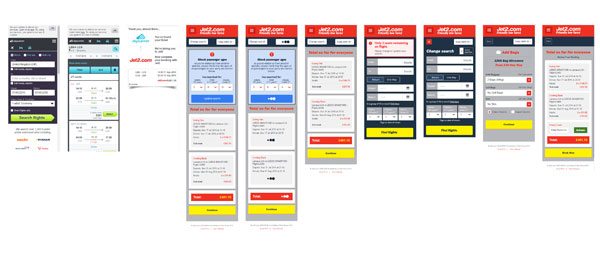
Yet airlines don't seem to be in any rush to make it easier for metasearch companies to do their jobs.
A case in point: This month, Skyscanner began selling the airfares of Scoot, a budget carrier owned by Singapore Airlines, in a way that lets users in Australia, Singapore, the UK, and India complete their purchase without having to exit the Skyscanner site.
This capability comes from Skyscanner’s integration with the Navitaire reservation system, owned by Amadeus, and a payments API (application programming interface, or a method used for retrieving data) from Braintree, a payments company owned by PayPal.
Direct booking is a step closer to what Ctrip CEO Jane Jie Sun has said is her company's plan to have more bookings actually take place on Skyscanner.
SLOW ADOPTION
If the technology is there, and money is to be made, why haven't more airlines come on board?
British Airways is the only other airline to publicly experiment with Skyscanner's direct booking offer so far. It started trials in summer 2015.
But even today, only customers in certain countries on certain days and on certain devices seem to able to do instant booking on the airline's full inventory, according to Skift's episodic testing.
Skyscanner chief executive Gareth Williams says the delay in adding airlines has been about ensuring his company's platform can integrate and support airlines with different requirements and make sure that the user experience is positive.
"We have a strong pipeline of carriers coming up in the near future, with a view to scaling coverage rapidly from here on in," Williams says.
That may turn out to be so. Still, the pace of adoption has been slow compared to, say, hotels on TripAdvisor.
TripAdvisor doesn't have instant booking for flights. “On the Flights side of our business, we’re keeping an eye on the facilitated booking model," says Bryan Saltzburg, senior vice president and general manager, Global Flights Business at TripAdvisor. "The airline distribution landscape continues to evolve and there are a number of solutions in the marketplace and various paths we can take to get to the same place.”
Momondo hasn't even attempted to offer instant booking, though chief executive Hugo Burge is cautiously optimistic about the concept. Burge says, "Anything that facilitates a frictionless user experience should be encouraged and welcomed, but it has do be done in a way that works for that brand within its user experience ecosystem, and which benefits the user and adds something to the trust equity metas are able to build up with them."
Skyscanner's director of product Filip Filipov says the complexity of airline technology is greater for instant booking. "With hotels, you don't have to make the payment at the time of the purchase. You make the reservation, and usually, you pay it at check-in or check-out. With airlines, though, you have to make that payment upfront. Not all airlines have developed their booking APIs and payment infrastructure to handle that."
Airlines track their inventory in computerized passenger service systems. Middlemen software use legacy links to these systems to pull data to online and traditional travel agencies. The data for complex airfare products are, broadly speaking, not included in these feeds. Airlines have to create a set of APIs to be able to connect to metasearch companies. Only a handful of airlines, such as Lufthansa, British Airways, Scoot, and Jet2, have created these APIs.
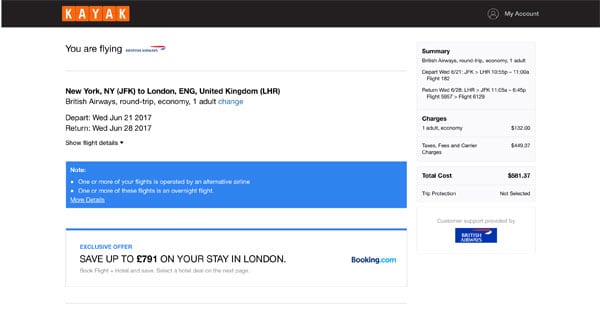
But this may be a question of will, rather than technical chops. Since 2010, airlines have been invited to offer direct booking on Kayak, the world's most-visited metasearch brand. Starting in 2012, Air Canada tried it. But few others have taken Kayak up on the opportunity.
Why are airlines hesitating? Keith Melnick, president of Kayak, says "there is a lot more testing going on behind the scenes than the public is aware of, especially in Europe with the low-cost carriers on mobile devices there. Airlines want to make sure everything works right before they go out with it globally."
There's also a user experience issue to still figure out, Melnick says. Kayak has found that users don't always want instant booking and that it would be "shortsighted" to force them to. "Some users are more familiar with shopping on, say, Booking.com or directly with Air Canada and we're fine with referring those users to the sites they already know," says Melnick.
Another wrinkle in the user experience is loyalty programs. Some frequent flyers may want their search results filtered to provide relevant results, something that the metasearch companies stumble at today both with and without instant booking.
A case in point: A flyer with platinum status on American Airlines would qualify for a complimentary upgrade to a seat with more legroom, where available — changing the calculus of comparing that seat's true value with a comparably priced seat on another airline.
One of the metasearch companies we spoke with said they are testing the ability to filter results in a way that accounts for frequent flyer status before rolling it out globally.
DO AIRLINES FEAR INSTANT BOOKING?
Airlines may be slow to push for instant booking because of a business strategy of preferring to drive users to their own websites and apps.
Eric Dumas, chief executive of travel business-to-business technology company Vayant, says that "low-cost carriers, in general, already have the type of API based capacity" needed to turn on instant booking, so, for them, choosing to allow instant booking via metasearch is "just a pragmatic consideration."
Larger network carriers usually need to do more investment to create the technological capacity, he says. They generally start by deep-linking from metasearch into their branded sites rather than doing instant booking on metasearch, "as this tends to be a straightforward implementation." Vayant, for instance, has helped airlines like Lufthansa do the technical and marketing work to facilitate instant booking via metasearch.
Yet while the technical capacity is falling into place, most airlines still hesitate.
As a short-term commercial consideration, some airlines may prefer to receive referral traffic from metasearch to their branded sites, where they can do more upselling. "Ultimately the airline is going to probably want to keep hold onto the booking path — via either a redirect onto their airline.com ... adding to their percentage of direct channel sales)," Dumas says.
Legacy airlines may be calculating that they can do a better job upselling customers if they get the customers on their own sites and apps. Delta, for instance, says that more than half of the people who look on their site at its new basic economy seats — which offer flyers lower fares in exchange for many restrictions — end up buying a ticket or ticket and ancillary purchase that is more expensive.
Upselling is vital to airlines, as it's the main source of profit growth. Yet none of the metasearch sites have gone big with the instant booking of ancillaries like seat upgrades and fees for seat assignment.
Melnick says it has been "testing with some airline partners" the upselling of ancillary products while users remain on Kayak.
Skyscanner's Filipov says one of the carriers it is working with will "soon see ancillaries shown as well" on Skyscanner.
ALL INSTANT BOOKING, ALL THE TIME
One person betting on the future of instant flight booking via price-comparison is Stéphane Pingaud, co-founder and chief executive of Flyiin, a site launching in public beta in August that plans to basically be fully instant booking, available directly from airlines.
Pingaud says his team is "actively working with 6 to 7 airlines and are waiting for another 5 to 6 to grant us access to their APIs." The online marketplace for air travel aims to enable consumers to search and buy flights – and any related services – directly with airlines, in one single digital environment that looks like metasearch.
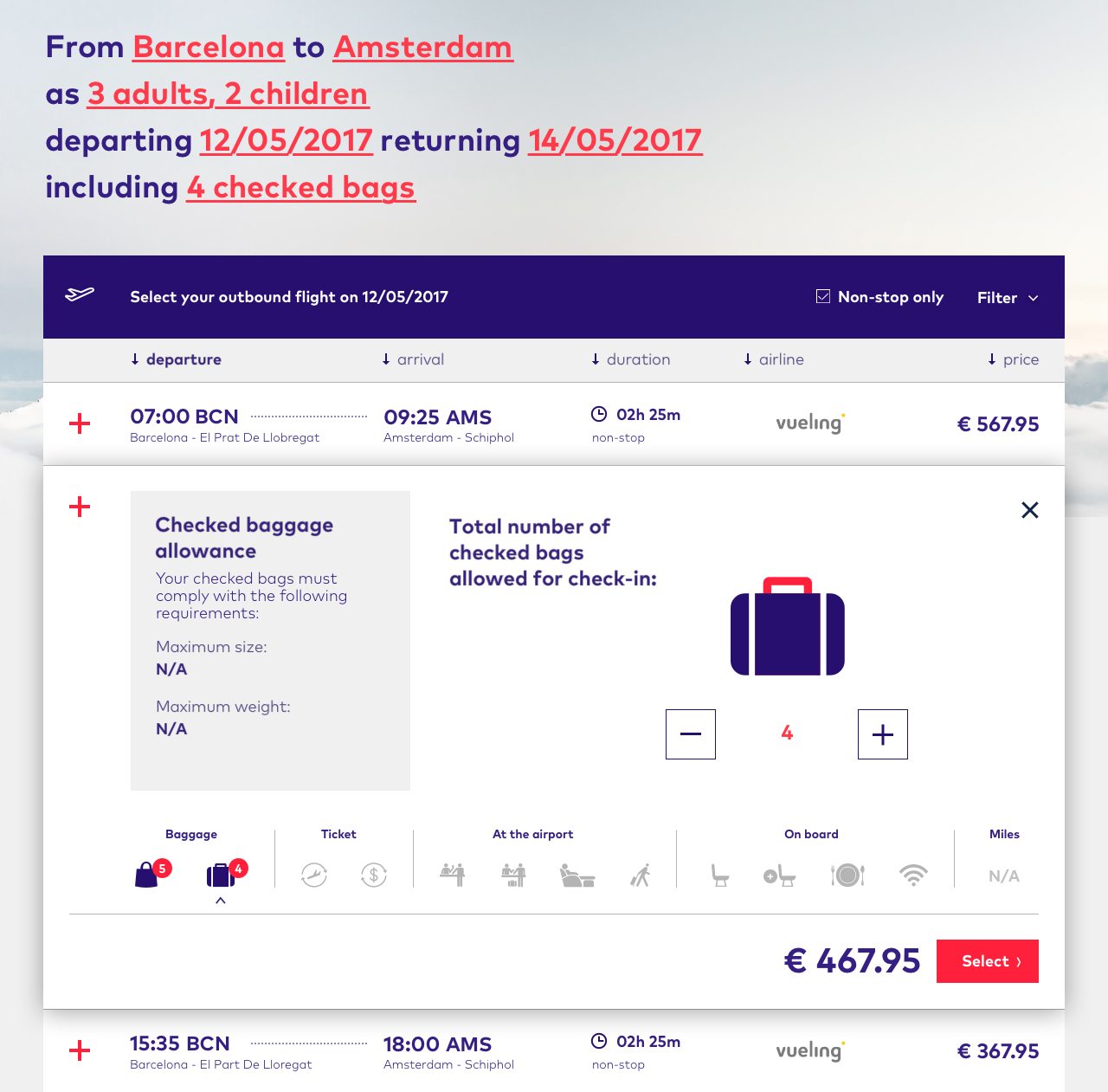
"When you use Flyiin, flight information, fares and any other fees for checked bags, seat selection, etc., will come directly from the airlines, who respond directly to your search requests, in real time. The chances that these fares are incorrect or not available are basically zero," says Pingaud.
That's different from standard (non-instant) metasearch, which sources data from different databases and, in certain instances, show fares that might be either incorrect or unavailable.
Pingaud says that "not a single euro will be spent on user acquisition during the first 18 months" as the company instead "will leverage the airline brands to help us get some awareness."
This non-marketing plan raises the question of whether some airlines have been waiting to have fuller control of the instant booking experience (with lower commissions, too) via an alternative to the metasearch giants.
FUTURE MOVES
Going back to the start, airlines keep introducing more complicated products, which creates problems for metasearch sites beyond the instant booking issue. How can the search sites offer apples-to-apples comparisons when the airlines keep making the products more like apples and oranges?
For example, this month American Airlines will start selling "basic economy" seats that don't allow the passenger to store luggage in the overhead bin. Is it fair to have that ticket come up higher in search results ranked by price than another airline's ticket that allows overhead bag storage?
Search sites recognize the "display challenge." Skyscanner says, "We are aware of the new basic fare classes soon to be launched by U.S. carriers and plan to include suitable messaging or filtering options so users can interpret these result appropriately."
Skyscanner's Filipov says, "We have experimented with the information given to us by the carrier in our search results and as we get more carriers to participate, that information will be surfaced at the time of the search and booking, rather than just booking."
Kayak says it is ready to handle such products, too. It will partly do this by using selective, agreed-upon screenscraping to copy-and-paste in relevant rules as they are updated on airline sites, notes Melnick.
Later this year, Kayak will begin publicly testing a broader, "creative solution" to this price-comparison challenge of airline-branded fares and fare families via a new interface.
In the meantime, consumers may be waiting at least another year before they see a significant number of airlines embrace instant booking via metasearch.
